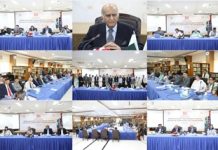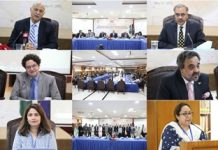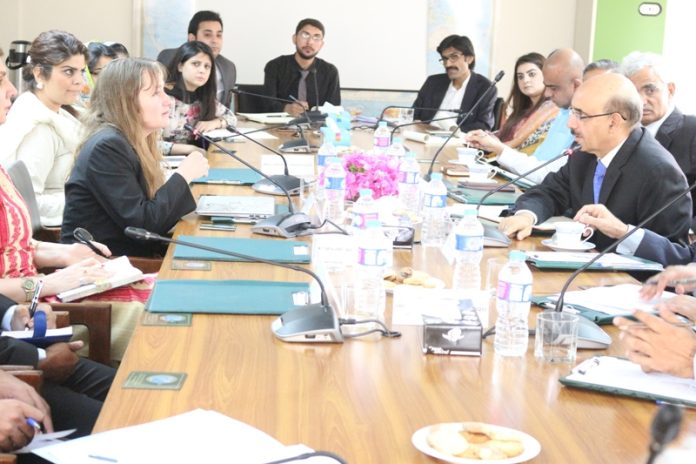Press Release
The Institute of Strategic Studies Islamabad (ISSI) hosted an In-House Discussion on June 1, 2016 on Nuclear and Conventional Force Imbalance: Global and Regional Implications for Conventional Arms Control. The Guest Speaker at the discussion was Dr. Christine M. Leah, Post-Doctoral Fellow, Grand Strategy Programme, Yale University. Besides the research fellows at ISSI, the discussion was attended by participants from Strategic Planning Division, Institute for Policy Studies, National Defense University and the Centre for International Strategic Studies.
Dr. Leah in her presentation emphasised on reducing the role of nuclear weapons, the conventional weapons symmetry in South Asia, nuclear disarmament or weapon reduction, and state of respecting arms control regimes especially in Asia. Dr. Leah was extremely pragmatic and realistic in her approach towards nuclear and conventional arms control in South Asia, and acknowledged the fact that total nuclear disarmament was not possible in South Asia and it might even have negative implications for “strategic stability’ in the region. The fact that Pakistan is discriminated by the international community vis-à-vis India regarding nuclear conventions and groups was explicitly acknowledged by Dr. Leah. She also said that the recent Indo-US Nuclear Deal was illegal and hypocritical in nature.
Dr. Leah’s presentation was followed by an intensive question and answers, and comments regarding improving arms control regimes and security dynamic in the South Asian region.
Ambassador Khalid Mehmood, Chairman Board of Governors, ISSI highlighted the growing need for developing new strategies to ensure conventional and nuclear symmetry across the world, particularly South Asia.
In his concluding remarks, Ambassador Masood Khan, Director General, ISSI emphasised on the simultaneous entry into the Nuclear Suppliers Group (NSG) of both Pakistan and India. He said that Pakistan fully qualifies to become an NSG member and this could be ascertained by using any criteria. Second, nuclear and conventional CBMs cannot be elaborated in the absence of dialogue which is being stalled by India. Third, the US must not abandon this region post 2016 because of the lessons learned back in the 1990s.
Tahir A/01062016












